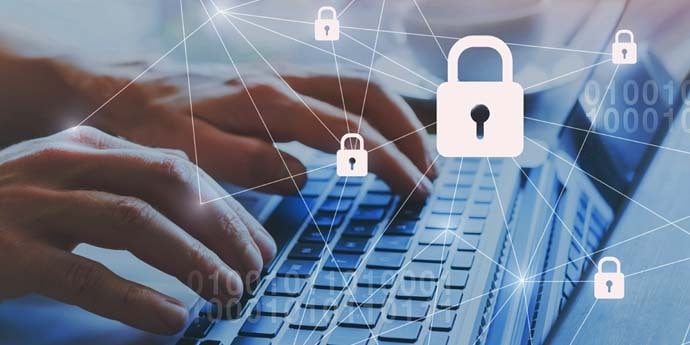
A guide to cybersecurity for SMBs
Cybersecurity will always remain a pressing issue for businesses around the world, particularly so…




Eze Adighibe
Consultancy Lead
5th September 2022
Cybersecurity skills have never been in greater demand. Hybrid is now the dominant work model, and organizations have become more reliant on digital technologies to enable distributed teams to connect, collaborate and communicate. But it stretches organizational perimeters to their very limits, which can leave businesses vulnerable to attacks.
With traditional CISOs out of reach due to running costs, organizations that require security leadership to establish and maintain a robust security strategy, are turning to virtual Chief Information Security Officers.
In this guide, we explore the roles and responsibilities of a vCISO, how one can benefit your business, why you should hire a vCISO, and what to remember before using a vCISO service.
A virtual Chief Information Security Officer (vCISO) is an outsourced security expert responsible for supporting your organization’s management of information security. Virtual CISOs can help manage your risk against cyberattacks by improving your existing security strategy and help to maintain high standards of compliance.
vCISOs are a cost-effective solution for businesses that do not have the resources to hire a full-time CISO. Virtual CISOs offer greater flexibility as organizations can choose which areas of their business require the attention and services of a vCISO. By working as part of your existing security team, vCISOs will help to develop new security approaches and risk management activities, work towards strengthening your security culture, and assist with your compliance needs.
A vCISOs role will be determined by your business requirements and can range from simply supporting your journey towards achieving compliance certifications, such as ISO 27001, PCI DSS, Cyber Essentials and Cyber Essentials Plus, to improving and maintaining your organization’s security posture.
Here’s an overview of the key roles and responsibilities of a vCISO:
vCISOs need to understand your business and have full visibility of your day-to-day business activities. This will help develop an IT infrastructure and security culture that meets your cybersecurity goals. To mitigate the security risks that threaten your organization, vCISOs will ensure that best security practices are followed, and that people, processes and technologies are working in tandem to safeguard your business.
A vCISO understands that information security is a continuous project. In order to execute and maintain an effective security strategy, securing stakeholder and C-level management buy in is key. A crucial part of a vCISO’s role is to report to the board and articulate why certain actions are needed. A virtual CISO is experienced in assessing businesses with impartiality and presenting risks to key stakeholders. By doing so, vCISOs can gain the necessary support and additional resources to help implement a robust security program.
Additionally, a vCISO may be required to inform and educate the wider business on cybersecurity risks – as well as act as a point of contact for customers and partners. Therefore, it’s essential your vCISO can communicate effectively with a variety of stakeholders in order to fulfill their responsibilities.
A virtual CISO will propose strategies that seek to improve your business’s incident response so that cyber threats are dealt with efficiently and effectively, with little to zero impact on business continuity.
Virtual CISOs can help to address some of the core challenges that organizations face within the cybersecurity industry, including:
Talent shortage: The global skills shortage in cybersecurity means that finding skilled and experienced security professionals is difficult – and retaining those skilled professionals is even harder. By taking on a vCISO, organizations are entrusting their services with fully qualified and experienced security professionals that can hit the ground running, once they understand your business environment.
Cost: Hiring a full-time CISO can be costly, with an average salary of £97,479 a year. Virtual CISOs won’t be on your business’ payroll, which will dramatically reduce cost. Furthermore, vCISOs do not require any onboarding or training to carry out their role and can help your business reduce cost by scaling their services up or down according to your business requirements.
Evolving threat landscape: The threat landscape is constantly evolving with attacks becoming ever more sophisticated. Therefore, there is a need to improve your security posture to ensure your business remains protected against common cyber threats. A vCISO can help address security concerns and help remediate any vulnerabilities that currently pose a risk to your cybersecurity.

A vCISO plays a crucial role in protecting an organization’s cybersecurity and helping to meet compliance objectives. The lack of dedicated security staff in an organization can pose a risk to any business. Without adequate planning, implementation, and ongoing management of security objectives, your organization’s security strategy can falter and increase the risk of a data breach or cyber attack.
By hiring the services of a vCISO, your organization can benefit from the following:
Organizations have always faced security incidents, but an increase in remote working has undoubtedly contributed to a rise in cyberattacks. This increase in cybercrime has placed significant pressure on existing CISOs, who are now overworked, to the point where only 12% of CISOs are considered highly effective.
As organizations grow organically, they can evolve into complex beasts with a large attack surface and operational silos. A vCISO can assist by bringing an objectivity, as well as a wealth of knowledge and experience, to simplify and help consolidate the security requirements to protect your business. Your organization will also benefit from the leadership qualities of a vCISO that can communicate strategic guidelines to key stakeholders and help build towards implementing a security culture.
Certain industries, like finance and healthcare, are highly regulated and require the business to hold a lot of sensitive information or personal data. A vCISO is essential to ensure ongoing compliance and safeguarding large volumes of highly sensitive data.
Then there are smaller organizations that may have limited budgets and cannot afford to hire a full-time CISO. In these situations, the smart choice is to outsource to a dedicated vCISO, saving valuable resources.
Before you hire a vCISO, take a moment to understand where your business is now, where it needs to be, and why. You may discover that there are additional technical skills you require beyond those of a ‘typical’ vCISO – for example, dedicated cybersecurity awareness training or penetration testing. This is when it’s useful to select a SaaS provider that offers vCISO services (rather than an individual), to access other security experts to support these additional requirements and ensure your security posture is maintained.
The role of a vCISO can bring many benefits to your organization, helping to create a robust security environment and meet your compliance obligations. By outsourcing a vCISO, your business will also be able to rely on a dedicated, tailored and cost-effective solution to hiring a full-time CISO. With a vCISO on board, your organization will be able to make smarter decisions that align your security with your business objectives.

Eze Adighibe
Consultancy Lead
Share this article

Cybersecurity will always remain a pressing issue for businesses around the world, particularly so…

As an IT manager, you’ll know that cybersecurity is a specialist subject with its own skillset, certifications, and technologies…

For a lot of companies, ‘getting compliant’ with something in cybersecurity or data protection usually means people’s eyes roll…

Looking back over the data from the past year always brings mixed feelings. There’s a sense of great achievement as we see unique technologies…
Get actionable cyber security advice and insights straight to your inbox.